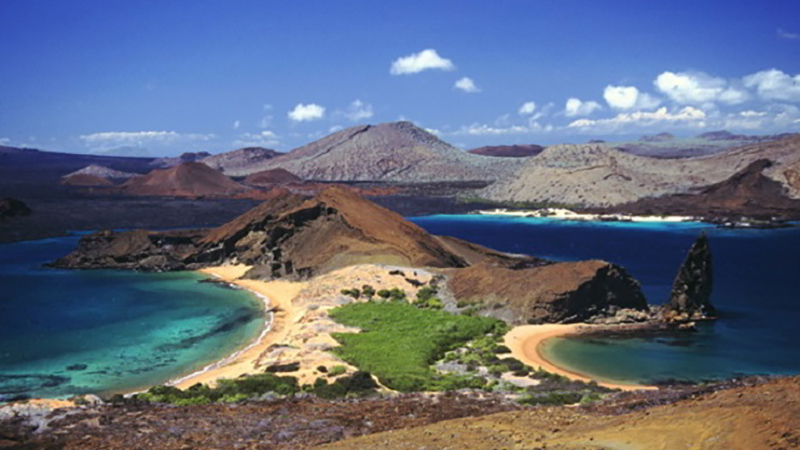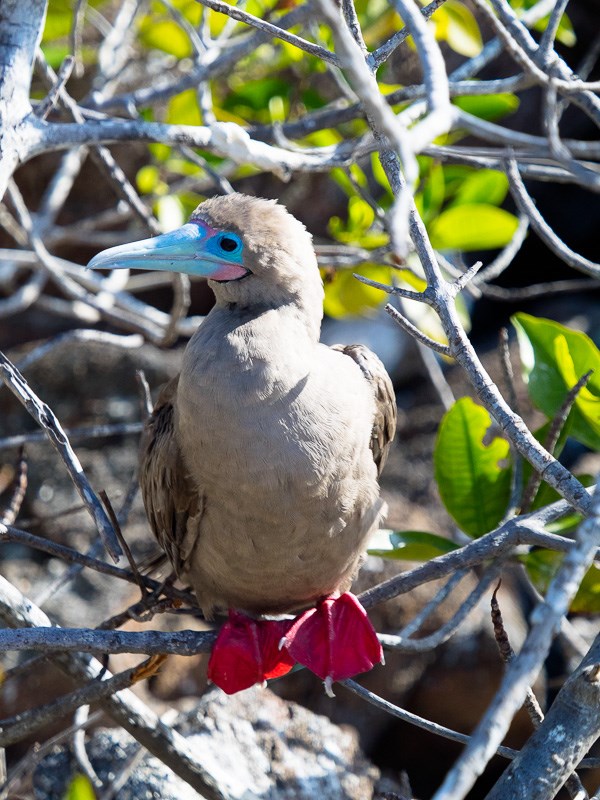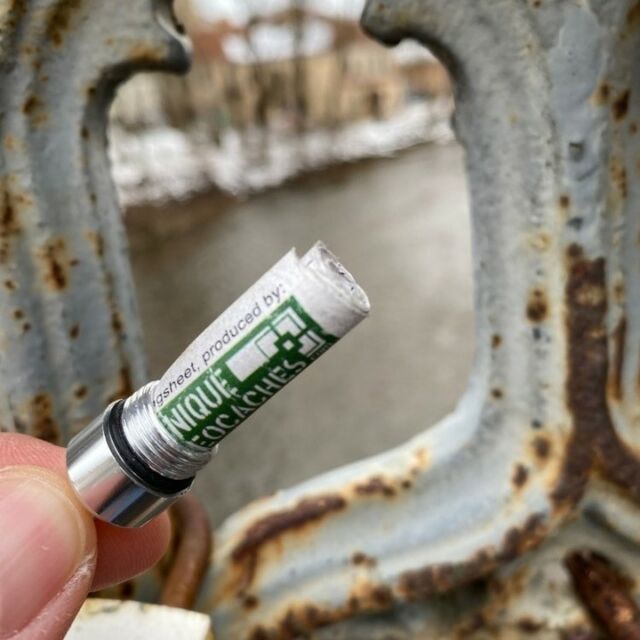The Galapagos Islands are well-known for their expansive population of species. About 80% of the land birds, 97% of the reptiles and land mammals, and more than 30% of the plants are endemic, which means “belonging exclusively or confined to a particular place”.

Seldom in nature can you be approached by a wild animal. Bartolome (Galapagos) GC1KGT8 can bring us up close and personal to nature. The island is also a geologist’s playground—so it makes perfect sense that a truly wonderful EarthCache is here.

The little island, Bartolome, is only 1.2 square kilometers (297 acres). Rocky pillars of basalt called “tuff cones” jut out from the surface of the island. These pillars are remnants of hardened fallout of a volcanic eruption. One of the great rewards of GC1KGT8 is the stunning postcard view of the prominent Pinnacle Rock, the largest tuff cone on the island.


 If you brought your snorkeler you are in for a treat! According to the cache page the northern beach is open for swimming and the beaches of Bartolome Island are filled with fluorescent fish, playful sea lions, and even whale sharks!
If you brought your snorkeler you are in for a treat! According to the cache page the northern beach is open for swimming and the beaches of Bartolome Island are filled with fluorescent fish, playful sea lions, and even whale sharks!

The trail continues to lead you across a sandy isthmus to another beach at the southern end of the island. Swimming here is not welcome, and not as friendly. White tip sharks have been known to enter the waters and the cache owner Boiler warns of hostile ghost crabs in that area.

The trail ends with a rock path and a long wooden stairway (~360 steps) brings you through the lunar landscape with almost no visibility up to summit hill and the viewpoint of Pinnacle Rock.

If you are EarthCaching on Bartolome Island here are some notable vocabulary terms to take with you as per the cache page:
1.) Lava tubes: Formed by flowing rivers of lava whose outer layer cools and solidifies quicker than the core (creating a skin). The liquid lava continues to flow through the middle, hollowing out an area creating a tube like structure.

2.) Spatter cones: These cones are either a deep red, gleaming black or intense green. The cones are formed when the pressure of gases below the magma in an active lava flow push upward. The gases escape carrying big pieces of lava into the air. The outside of the lava cools down and turns black, and when it hits the ground, the lava ball bursts open releasing the hot magma inside.

3.) Lava bombs: The outcome of a spatter cone. The outside surface of lava bombs are smooth, but the inside of the lava bomb bursts open with broken fragments, creating A’a lava. The broken lava is very runny. However, once the gases all escape, the lava will start to slow, creating pahoehoe lava.
Here’s what our fellow cachers had to say about their experience:
One of the most beautiful landscapes in the Galapagos so far! What an awesome trip Elm77 and I are having. The climb was a breeze for me and the view spectacular. Our guide knew a lot about the geology of the area so I learned a lot! Answers and picture will be sent as soon as I get home. Thanks for the lesson! –Pomwoof

Last year on my 40th birthday I made myself the present of a Galapagos dive trip. And by doing so a dream came true. As a group of 16 divers from Switzerland we were able to charter the “Galapagos Aggressor” for our trip.
On the second day of diving after two dives at Punta Carrion we set foot on Bartolomé Island for a land tour. Of course I had already hoped at home that I would get the opportunity to visit one of the few caches around the Galapagos Archipelago.
I enjoyed the hiking a lot, admired the view from the top and even had the chance to see sea lions, penguins, Darwin’s finches, a lizard and a blue-footed booby – part of the animals on land, part while riding the zodiac. –Haiopaia

Thank you boiler for cooking up this hot EarthCache. Is that name a coincidence? I think not. Check out the beautiful photography from geocachers who have visited Bartolome Island and in the gallery below!






















 Geocache of the Week
Geocache of the Week 
 Have you ever wanted to be a real-life spy
Have you ever wanted to be a real-life spy

 In today’s episode of Jurassic Bark…
In today’s episode of Jurassic Bark… 


